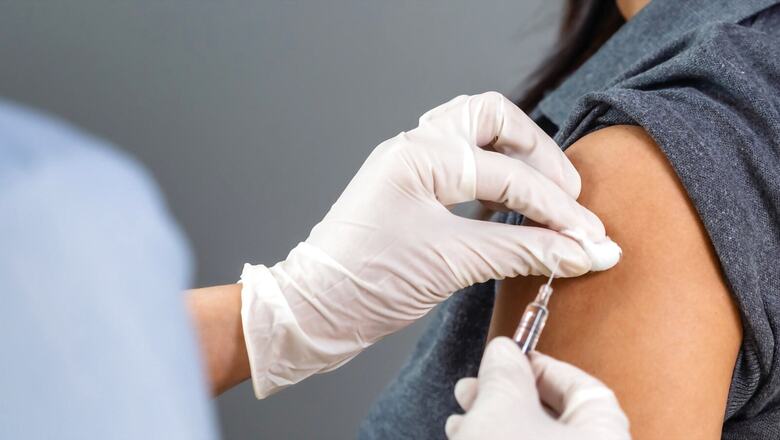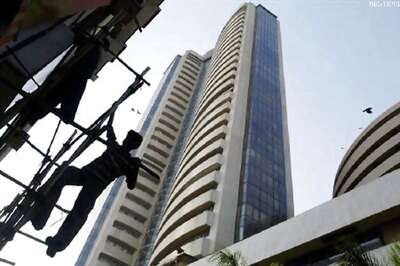
views
According to the Global COVID-19 Index (GCI), in 2020, when most countries worldwide suffered from the global pandemic, Thailand was ranked the ‘No.1 World Best Country for recovering from the COVID-19 epidemic’. After 3,307 infections and 56 deaths in the first wave between April and early May 2020, it was followed by no new report of infections until 18 December 2020. The second wave that hit Thailand in the last two weeks of 2020 was also quickly brought under control by early 2021.
In July 2021, however, the tide turned. Thailand has now almost sunk to the bottom, ranking 118th out of 120 countries, in the recent the Nikkei Asia COVID-19 recovery index. Since the third wave started in late March, in just three months, the country’s recorded cases skyrocketed to 10 times in terms of the total cases and 30 in fatalities, with more than 10,000 new cases daily. At this rate, the healthcare system has already been overwhelmed. Worst of all, experts believe that the infection numbers are underreported by far, and the worst is yet to come.
Based on the global experience of the virus, it might be true that the new wave of COVID-19 seems inevitable, especially with the emergence of new variants including the Delta variant, which is two to four times more transmissible than the original SARS-CoV-2 strains. However, we must insist that the crisis in the Thai healthcare system could have been avoided, and the current crisis of the Thais is, indeed, an outcome of their failure in vaccine management.
According to the current official plan, Thailand aims to reach herd immunity, meaning 70 percent of the population having some forms of immunity, by the end of 2021. However, until this mid of July, only about 16 percent of Thais got at least one vaccine shot. Behind this result is the slow vaccination rate of approximately 240,000 jabs per day. At this rate, it will take Thailand nearly two years to reach its vaccination goals. If the country wants to maintain this goal, they must ramp up the current rate by three times.
Unfortunately, the ramping up of vaccination is impossible because Thailand has inadequate ‘effective vaccines’.
Back in 2020, Thailand was more fortunate in comparison to the other states, so they had both the time and the resources to be prepared for the next waves of the pandemic, including the vaccination plan. During this period, the Thai government announced that they came to an agreement with AstraZeneca, to supply the COVID-19 vaccine and transfer the vaccine technology from the British-Swedish firm to a local production line. The official agreement was signed in November 2020. This deal made Thailand one of the first few countries to secure COVID-19 vaccines at that time.
Some policymakers believed that the AstraZeneca deal was a brilliant move and strategically convincing. For them, the benefits of technological transfer from AstraZeneca to a local firm is invaluable: It makes Thailand self-reliant in terms of vaccine production and promotes the Thai pharmaceutical industry at the forefront amongst the other ASEAN countries.
OPINION: With 1 Crore Jabs in a Day, Indian State Has Given Befitting Reply to Detractors
However, the real numbers did not add up to enable the delivery of such promises. According to official documents acquired by a House panel in November 2020, AstraZeneca promised 26 million doses to Thailand by 2023. This number implies Thailand’s acquisition to be only 10 million doses per year. Although the Thai authority later announced in January 2021 (after the second wave) that the government had actually ordered more than 35 million doses from AstraZeneca, there was no significant change in the amount and the timeline.
Since that time, the Thai government has been heavily criticised for its slow vaccine rollout and for relying on only one kind of vaccine, which was later dubbed as ‘Betting on a one-horse strategy’. However, the authorities insisted that this vaccine plan was adequate; they then shut the door to other vaccine makers and even the collective distribution program such as COVAX.
Only when the third wave hit the country in March 2021, and the situation became out of control did the government started to change their stand and seek more alternative vaccine suppliers. However, it was too late to find effective vaccines in the market. At that time, only Sinovac, a Chinese vaccine, was available in massive amounts. The Thai people have no choice but to grasp the Sinovac as a necessary lifeline.
Thus far, although being the priority vaccine according to national policy, AstraZeneca accounts for only about 40 per cent of the total shots, while Sinovac, which is relatively less effective with the Delta variant, is 60 per cent. This unfortunate number causes several severe problems to the Thai healthcare system as there have been recent reports of thousands of cases, including more than 600 medical workers, being infected by COVID-19 despite Sinovac vaccinations.
Like other places worldwide, effective vaccination is the only way to get Thailand out of this pandemic crisis. Now, the Thai government has revised the plan to find ‘effective vaccines’ for 100 million doses by 2021. However, experts estimate that there will be only 30 million doses because AstraZeneca could not deliver the number of vaccines that Thailand needed, and Sinovac could not be counted as an ‘effective vaccine’ for this crisis. The situation is clear from the statistics; Thailand cannot escape from the current crisis.
How did Thailand turn from the best country in terms of its response to COVID-19 to the worst one? Here are some lessons to be learnt.
ALSO READ | J&J Single-dose COVID Vaccine Can Improve Coverage in Tough Terrains, Tackle Inequity
First, “the fortunate situation in 2020 has turned into a trap for the Thai government,” is what has been concluded by the Thailand Development Research Institute (TDRI), the most prominent public policy think tank in Thailand. When Thailand started to draft a vaccine policy, they lacked a sense of urgency and became overconfident in a virus-coping capacity they did not possess.
Secondly, the Thai vaccine policy has been dominated by public health experts. This domination naturally leads to the lack of consideration of the economic aspects of the plan. At a very early phase, due to concerns about the side effects of new vaccines, these medical experts neither considered having vaccination as necessary nor did they consider the economic impacts of this decision. For economists, massive vaccination is the only and critical policy that can kickstart the recovery of the Thai economy, which heavily relies on the tourism and export sectors.
Thirdly, the Thai vaccine policy reflected mismanagement of risks by relying on an optimistic assumption regarding the number of AstraZeneca vaccines that Thailand could produce domestically after the transfer of the technology. No doubt that ‘betting on a one-horse strategy’ proved to be wrong. In a similar vein, the decision not to participate in the COVAX project was also a terrible move. The Thai authorities defended that Thailand would not gain much from the COVAX programme because this channel promises only a few numbers of doses, insignificant to the overall need. However, in a time of scarcity, even a “few numbers” are critical.
Fourthly, the government’s preference for Sinovac as opposed to other more effective vaccines suspiciously persists. The denial to move away from this preference is unexplainable; therefore, it has created two kinds of social doubts: First, whether some policymakers have conflicts of interest with the Sinovac order, especially when the Chinese firm delivering it has close ties with a giant Thai conglomerate. Second, the government is afraid to admit that that their preference was wrong, as it would imply the failure of their policy, which will in turn cause a loss in popular support. If these doubts are sound, the failure of the vaccine policy is partly a result of the Thai political economy.
Last but not the least, besides mismanagement of vaccines, the Thai authorities completely failed on the public communication front. Since early July 2021, the Thai government significantly changed its vaccine policy, from ‘betting on a one-horse strategy’ to all possible options, including mRNA vaccines such as Pfizer and Moderna. Nevertheless, according to many official sources, Thailand will have enough vaccines to help the recovery of the collapsed healthcare system as soon as the first quarter of 2022, implying that the rest of 2021 is going to be a guaranteed catastrophe.
This article was first published on ORF.
Read all the Latest News, Breaking News and Assembly Elections Live Updates here.


















Comments
0 comment